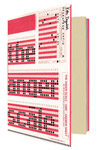Flarf poets, or Flarfists—members of a movement, or parody of a movement, created over email in 2001—make many of their poems by arranging and altering phrases from the results of Google searches, often involving embarrassing, kitschy, trashy, or seemingly unserious content. Cofounder Gary Sullivan, who coined the term, calls Flarfiness— the quality such poets seek—“corrosive, cute, or cloying awfulness. Wrong. Un-P.C. Out of control. ‘Not okay.’”
Debates about Flarf have spread like toadstools after torrents—to online journals, to the Village Voice and the Nation—with anti-Flarf voices represented at length. All the Flarf I’ve seen, including Degentesh’s debut collection, reflects annoyance, tetchiness, a prankster mind-set, and a frank sense of exhaustion, even boredom, with older, subtler techniques. Most of it has turned out to be more interesting to debate than to re-read.
Degentesh’s aptly titled, fiercely serious book, though, makes the whole Flarf flap worthwhile. Like all Flarf poems, hers risk dissociative mess, dissolving into “a series of little red warning lights” about the commodification of language, a mere “avant-garde artistic attitude,” or a simulation of email spam. Unlike most Flarf—and like, say, most Stooges tracks—Degentesh’s poems hold together despite their raggedness, roar with resentment against the world as it is, and resonate with joy.
Degentesh generated every poem from Google searches for phrases pulled from the Minnesota Multiphasic Personality Inventory, the famous decades-old test for mental abnormality. Each poem takes its title from one of the test’s agree/disagree statements, for example: “Sometimes I Feel As If I Must Injure Either Myself or Someone Else.” The MMPI makes an ideal Flarfist starting point, since it plays against the (supposedly) impersonal technique; it turns out that placing awkward personal statements (what you get when you Google MMPI phrases) beside one another, tweaking them slightly, and sorting them into stanzas, gives the statements coherence, pathos, or comedy they would not have had on their own: “I had no idea you were this religious / I must smash my head into the wall.”
This Flarf is not a rejection of art but an art—like any good collage—of discovering, rescuing, and arranging, evident from the volume’s very first lines: “Even if your heart is messy, I will clean it up. / I have no sense of touch, I do not hear the events around me, / and haven’t even had a fever for many years.” Sad alone, once conjoined these phrases invite denials: Are you sure you can’t hear me? Do you have a fever now? Other passages offer appalled humor: “Finding you, my twin soul, has been the best thing for me. / However I am not sure I’d repeat the process next year.” “This planet has—or rather had—a problem / it simply feels flat most of the time / the way a few very rich people do now.”
As you might expect, this poet of tests and web tools seems to fear that language has become automatic, inadequate, and interchangeable, a mockery of what, long ago, we thought the soul could be. But it’s how these fears become poems that sets her apart. Degentesh’s lines may be (as Flarfists say) Google-sculpted, but they are also, simply, sculpted; Googling in her hands (fingers? keyboard?)—and its low-tech analogue, overhearing—become not just procedures but scary symbols. We are, as she is, apparently helpless, flailing, with so many phrases available, so little chance of using them to keep whatever we believe we need.





